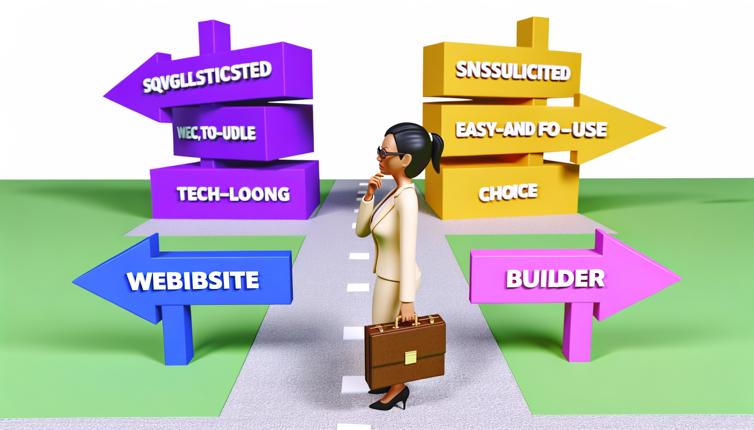Factors to Consider
When choosing an e-commerce platform for your online store, there are several important factors to consider. These factors will help you determine which platform is the best fit for your business and will ensure that you make an informed decision.,1. Budget: Consider how much you are willing to spend on an e-commerce platform. Some platforms have monthly fees or transaction fees, while others are free to use. It's important to choose a platform that fits within your budget and provides good value for the price.,2. Features: Think about the specific features you need for your online store. This could include inventory management, order tracking, payment gateway integration, and marketing tools. Make a list of the must-have features for your business and prioritize them when evaluating different platforms.,3. Scalability: Consider the future growth of your business. Will the platform be able to handle increased traffic and sales as your business expands? Look for platforms that offer scalability and flexibility, allowing you to easily upgrade or add new features as your needs change.,4. User Experience: Your e-commerce platform should provide a smooth and intuitive user experience for both you and your customers. It should be easy to set up and navigate, with a responsive design that works well on both desktop and mobile devices. Look for platforms that offer customizable themes and templates to create a visually appealing and user-friendly online store.,5. Integrations: Consider the other tools and services you use or plan to use for your online store. Your e-commerce platform should integrate seamlessly with these tools, such as accounting software, email marketing services, and social media platforms. Check whether the platform offers built-in integrations or supports third-party integrations.,6. Customer Support: It's important to choose an e-commerce platform that provides reliable customer support. Look for platforms that offer multiple support channels, such as live chat, email, and phone support. Read customer reviews and check the platform's documentation and knowledge base to ensure that you will receive prompt and helpful assistance when needed.
Popular E-commerce Platforms
There are many e-commerce platforms available, each with its own strengths and weaknesses. Here are some popular options for online store owners:,- Shopify: Shopify is one of the most popular e-commerce platforms and is known for its ease of use and extensive app marketplace. It offers a wide range of features, including customizable themes, secure payment gateways, and built-in marketing tools.,- WooCommerce: WooCommerce is a WordPress plugin that allows you to turn your WordPress website into an e-commerce store. It's a flexible platform with a large community of developers and a vast selection of plugins and themes.,- BigCommerce: BigCommerce is a robust and scalable e-commerce platform that is suitable for businesses of all sizes. It offers advanced features and integrations, as well as 24/7 customer support.,- Magento: Magento is a powerful open-source e-commerce platform that is highly customizable and scalable. It's a good choice for large, enterprise-level businesses with complex requirements.,- Wix: Wix is a website builder that also offers e-commerce functionality. It's a beginner-friendly platform with easy-to-use drag-and-drop tools and customizable templates.,These are just a few examples, and there are many other e-commerce platforms available. Explore each platform's features, pricing, and customer reviews to find the best fit for your online store.
Conclusion
Choosing the right e-commerce platform for your online store is a crucial decision that can impact the success of your business. By considering factors such as budget, features, scalability, user experience, integrations, and customer support, you can make an informed choice that aligns with your business goals.,Remember to thoroughly research and test different platforms before making a final decision. Take advantage of free trials and demos to get a hands-on experience and see if the platform meets your requirements.,Once you've chosen an e-commerce platform, take the time to customize it to reflect your brand and optimize it for search engines. Regularly update your online store with new products and promotions to attract customers and drive sales.,By choosing the right e-commerce platform and implementing effective strategies, you can create a successful online store that provides a seamless shopping experience for your customers and helps your business thrive.
Questionaries
Tips
- Research and compare different e-commerce platforms to find the best fit for your online store.,- Consider your budget, desired features, scalability, user experience, integrations, and customer support when making a decision.,- Take advantage of free trials and demos to test the platforms before committing.,- Customize your online store to reflect your brand and optimize it for search engines.,- Regularly update your store with new products and promotions to attract customers.,- Stay up to date with industry trends and best practices for e-commerce success.
Cited Sources
Conclusion
Choosing the right e-commerce platform for your online store is essential for success. By considering factors such as budget, features, scalability, user experience, integrations, and customer support, you can make an informed decision that aligns with your business goals. Research and compare different platforms to find the best fit, and remember to regularly update and optimize your online store to attract and retain customers.









